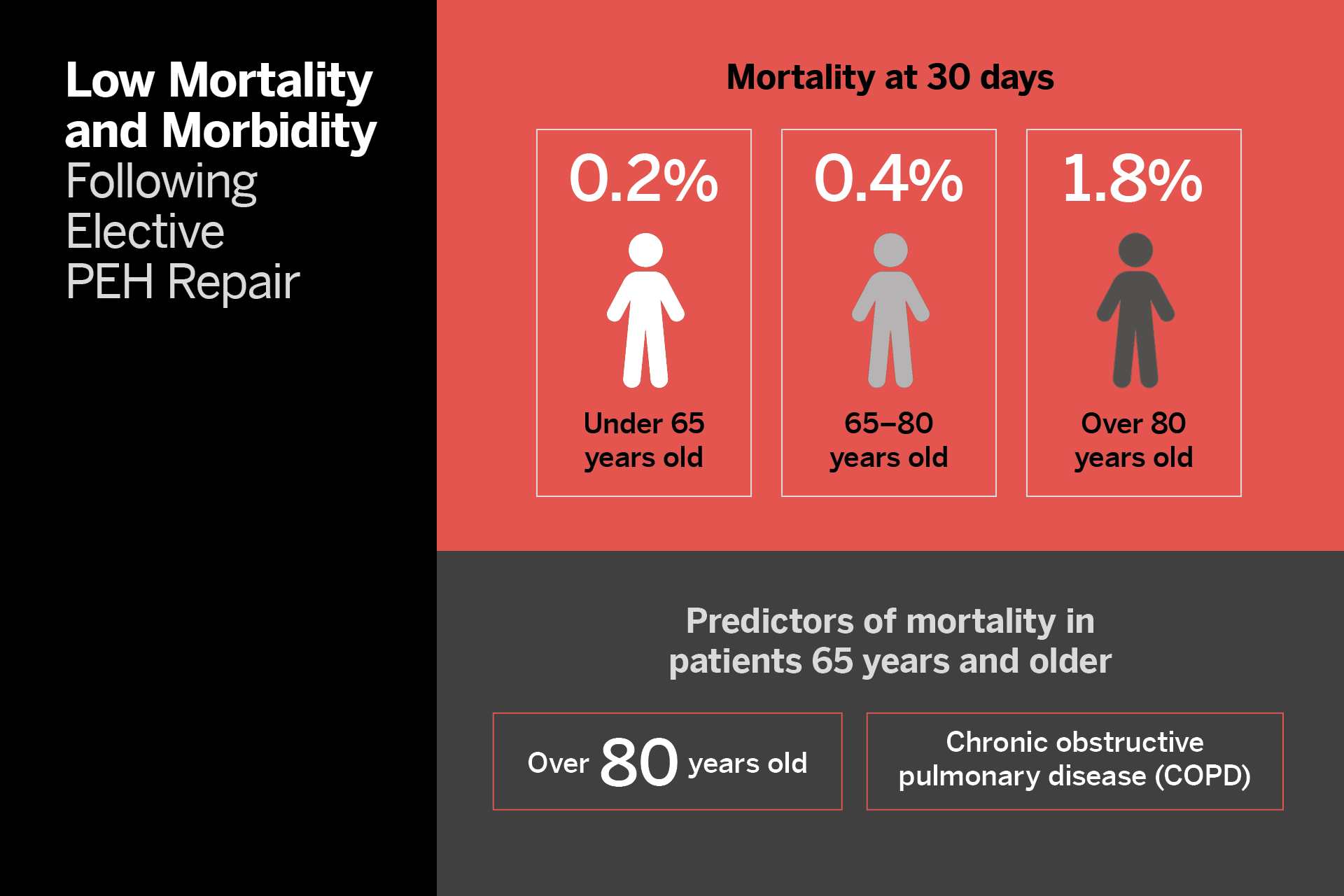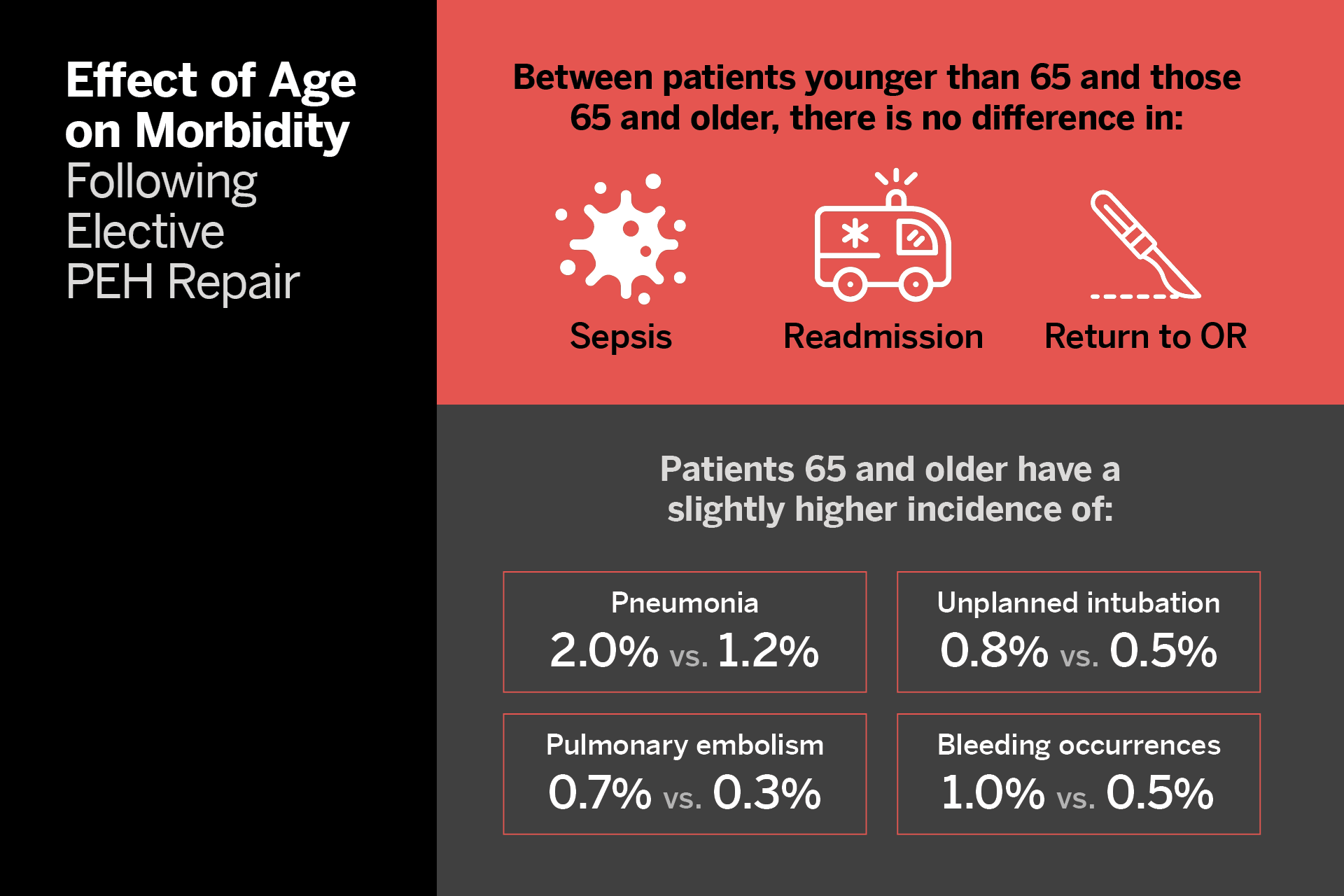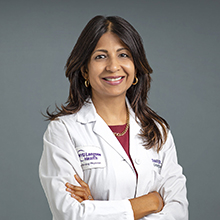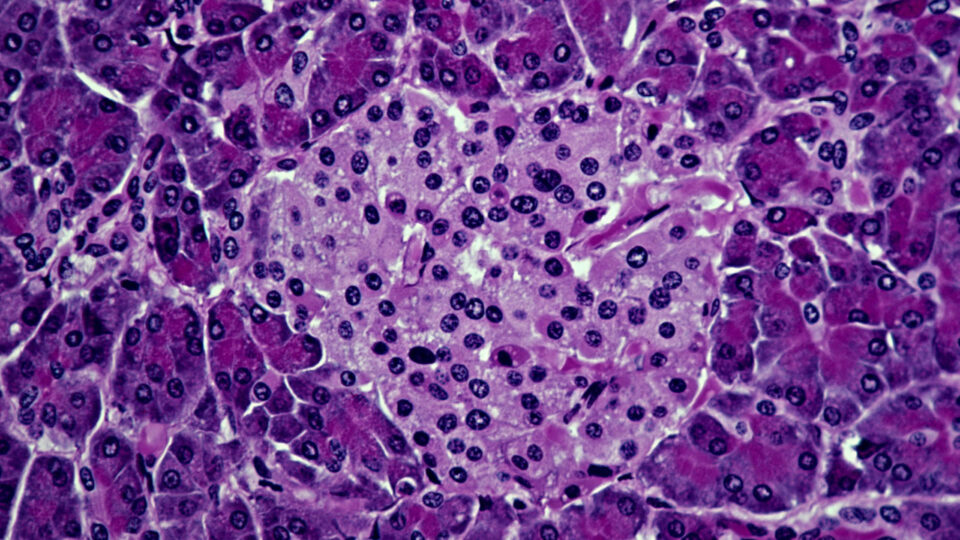Mortality following elective paraesophageal hernia (PEH) repair remains below 0.5 percent until age 80, according to a recent publication in Surgical Endoscopy. The study, one of the largest to evaluate elective PEH repair in recent years, supports a shift from watchful waiting to operative repair for patients age 65 or older with asymptomatic or mildly symptomatic PEHs.
“Age by itself should not be a contraindication to surgery,” says Tanuja Damani, MD, first author on the study and surgical director of the Center for Esophageal Health.
Assessing Outcomes by Age
Utilizing data from the American College of Surgeons National Surgical Quality Improvement Program database, Dr. Damani and colleagues identified over 12,000 patients who underwent elective PEH repair between 2015 and 2017, including 5,476 patients age 65 or older.
A watchful waiting approach for patients in this age group was originally supported by a Markov Monte Carlo decision model, which indicated that elective repair would only shift to being the optimal treatment if the mortality rate for surgery dropped to 0.5 percent or below.
“This data from 20 years ago continues to drive patient referrals for elective surgery of paraesophageal hernias today,” says Dr. Damani. “Watchful waiting can lead to a significant increase in hernia size, making surgery more technically challenging, or can lead to an acute volvulus requiring an emergency operation with higher morbidity.”
“Age by itself should not be a contraindication to surgery.”
Tanuja Damani, MD
With results from the new study suggesting that this threshold has been reached, Dr. Damani hopes more referring specialists will consider elective repair for elderly patients.
“To put in perspective how far we have come, mortality for elective paraesophageal hernia repair falls between the mortality of gallbladder surgery, which is 0.3 percent, and that of colon resection, which is 0.9 percent,” says Dr. Damani.
An Uncomplicated Recovery
Dr. Damani also emphasizes that age does not impede the relatively quick and smooth recovery following minimally invasive PEH repair. For patients age 65 or older, no differences in return to OR or readmission were noted in the study, and length of stay only increased by a median of 0.5 days.
“At our center, we have not needed to send a single patient in the last three years to a rehab facility because of this operation,” says Dr. Damani. NYU Langone Health is a high volume site for hiatal hernia repair, having performed 110 procedures over the last two years alone, Dr. Damani notes.







